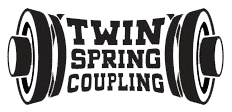Top Signs Your Vehicle Needs a Coupling Replacement
Table of Contents
As a vehicle owner, keeping your car in top condition is a priority—whether it’s for daily commutes, long road trips, or just ensuring your vehicle lasts for years. One of the lesser-known but critical components that can affect your vehicle’s performance is the power transmission coupling. This small yet vital part ensures that power from your engine is transferred smoothly to the wheels.
Over time, the couplings in your vehicle can wear out, leading to performance issues or even potential breakdowns. In this blog, we’ll cover the top signs that your vehicle’s coupling needs replacement, the major OEM (Original Equipment Manufacturer) and aftermarket brands, and how to ensure you’re choosing the right coupling for your vehicle. We’ll also discuss common car brands like Ford, Chevrolet, Toyota, Honda, and more, giving you a clear understanding of what to look out for and how to act.
What Is a Power Transmission Coupling?
First things first—what exactly is a power transmission coupling in your vehicle? A coupling connects two rotating shafts, transmitting power from the engine to the transmission, which in turn powers your vehicle’s wheels. This simple component plays a big role in reducing vibration and handling the misalignment between the shafts, which keeps your car running smoothly.
Whether you’re driving a compact sedan like a Honda Civic or a heavy-duty pickup like a Ford F-150, your vehicle’s coupling is critical to smooth operation. However, just like any other part, couplings can wear down over time due to heat, friction, or stress. Here’s how to tell when it’s time for a replacement.
Top Signs Your Vehicle Needs a Coupling Replacement
1. Unusual Vibrations While Driving
One of the first and most obvious signs that your vehicle’s coupling may need replacing is unusual vibrations. If you start to feel a vibration through the steering wheel, floor, or seats, it could be due to a worn coupling. Since couplings help to dampen vibrations between the engine and transmission, a worn coupling can no longer do its job effectively, leading to a rougher ride.
You might notice this particularly at higher speeds or when accelerating. Common vehicle brands like Chevrolet, Dodge, and Toyota are not immune to this issue, and regular checks on couplings can help prevent larger problems.
2. Clunking or Clicking Noises
Another common symptom of a failing coupling is strange noises, especially when shifting gears or accelerating. A coupling that’s nearing the end of its life might make clunking, clicking, or rattling sounds due to increased play between the rotating shafts.
This is particularly important for vehicles that endure heavy use, like pickup trucks or SUVs (think Ford Explorer, Chevy Tahoe, or Ram 1500). In these vehicles, the drivetrain experiences significant stress, making coupling wear more common. If you hear any unusual sounds from under your vehicle, it’s a good idea to have the couplings checked.
3. Difficulty Shifting Gears
For vehicles with manual transmissions, a worn coupling can lead to increased difficulty in shifting gears. If you find that shifting is becoming more challenging or the gears aren’t engaging smoothly, the coupling may be misaligned or worn out. This can be a subtle sign at first but can lead to more severe transmission issues if not addressed.
Even vehicles with automatic transmissions, like the Toyota Camry or Honda Accord, can experience rough or delayed gear shifts due to coupling problems.
4. Loss of Power or Acceleration
If your vehicle isn’t accelerating as it normally would, it could be due to a worn coupling that’s not efficiently transmitting power from the engine to the wheels. This loss of power could be most noticeable when driving uphill or carrying heavy loads.
Owners of vehicles like the Chevrolet Silverado or Ford F-150, which are often used for towing and hauling, should be particularly mindful of this sign, as heavy loads can exacerbate coupling wear. If your vehicle feels sluggish or slow to respond, it’s worth getting the coupling inspected.
5. Excessive Play in the Drivetrain
Excessive play or slack in the drivetrain is a clear sign that something is wrong. When you step on the gas and there’s a delay in power transfer to the wheels, it may indicate that the coupling is not as tight or secure as it should be. This can create a jerky, unresponsive feel when driving.
Common SUVs and trucks like the GMC Sierra, Dodge Durango, and Jeep Grand Cherokee are vehicles where drivetrain issues are often first noticed, especially when driving off-road or in challenging conditions. If you feel like your vehicle has a lot of “slack” in its response, it could be time for a coupling replacement.
6. Visible Wear or Damage
Sometimes the signs are more visual than auditory or tactile. If you or your mechanic inspect the coupling and notice visible signs of wear, cracks, or damage, it’s time for a replacement. Over time, the materials in couplings—especially rubber or elastomeric couplings—can degrade due to heat and friction.
Couplings in vehicles like the Nissan Altima, Ford Focus, or Hyundai Sonata may show signs of wear after several years of operation, particularly if the vehicle is used in extreme temperatures or driving conditions.
Leading OEM and Aftermarket Coupling Manufacturers
When it comes to replacing your vehicle’s coupling, choosing the right manufacturer is critical for ensuring longevity and performance. There are several major OEM and aftermarket brands that produce high-quality power transmission couplings for vehicles. Here’s a breakdown of the key players:
OEM Brands
- Spicer (Dana): A well-known name in the automotive world, particularly for their U-joints and power transmission products. Spicer couplings are commonly used in vehicles like the Jeep Wrangler, Ram 2500, and Ford Super Duty trucks.
- Moog: Moog produces reliable and durable couplings, especially for steering and suspension components. They’re a top choice for many vehicle models like Chevrolet, GMC, and Dodge.
- Neapco: This brand provides high-quality driveline components, including couplings, for vehicles such as the Ford F-150 and Chevy Silverado.
- SKF: Known for precision engineering, SKF produces robust couplings that are often used in European vehicle brands like BMW, Mercedes-Benz, and Volkswagen.
Aftermarket Brands
- GMB: A popular aftermarket option, GMB manufactures high-quality, affordable couplings that fit a range of vehicle brands, including Toyota, Honda, and Hyundai.
- ACDelco: Often considered a premium aftermarket brand, ACDelco produces top-tier replacement parts, including couplings, for GM vehicles like Cadillac, Buick, and Chevrolet.
- Mevotech: Specializing in durable aftermarket components, Mevotech provides couplings that are perfect for high-performance vehicles and heavy-duty trucks.
- Dorman: Known for their wide range of replacement parts, Dorman offers couplings for most major vehicle brands, including Ford, Nissan, and Chrysler.
How to Choose the Right Coupling
When it comes to replacing the coupling in your vehicle, choosing the right product can make all the difference. Here are some factors to consider:
- OEM vs. Aftermarket: OEM couplings are designed specifically for your vehicle make and model, ensuring perfect fit and performance. Aftermarket couplings can offer more affordable options but may not always provide the same level of precision.
- Material: The material of the coupling affects its durability and flexibility. For example, elastomeric couplings are more flexible and absorb shocks, making them ideal for high-vibration environments. Metal couplings are more durable but less flexible, suitable for heavy-duty vehicles like Ford or Chevrolet pickups.
- Vehicle Type: The type of vehicle you own will also dictate the best coupling. For sedans, you may prioritize smooth operation and fuel efficiency, while for trucks and SUVs, durability and the ability to handle high torque are more important.
The Importance of Regular Maintenance
Regular maintenance is key to preventing coupling failure and ensuring a long life for your vehicle’s drivetrain. Many vehicle owners overlook their couplings until a major problem occurs, but routine inspections can help catch issues early.
During regular maintenance, ask your mechanic to check the condition of the couplings, especially if your vehicle has over 100,000 miles on it or if you use your vehicle for towing or other heavy-duty tasks.
Top Signs Your Vehicle Needs a Coupling Replacement
Conclusion
Replacing a worn-out coupling is essential to maintaining your vehicle’s performance, safety, and longevity. If you’ve noticed any of the signs mentioned—unusual vibrations, clunking noises, or difficulty shifting gears—it may be time to have your coupling inspected. By choosing a reliable OEM or aftermarket brand like Spicer, Moog, Neapco, or GMB, you can ensure your vehicle continues to run smoothly for years to come.

